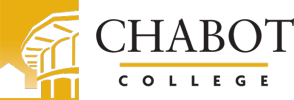
LVN-RN
This program map from the 2024-2025 catalog year represents one possible pathway to complete this program. Your pathway may vary depending on your transfer plans and also previous college credit, including AP Test scores, concurrent enrollment courses and high school articulated courses.
I'm ready to get started. What do I do next?
- Review this program map to get an overview of the required courses
- Meet with a counselor to develop your customized student education plan www.chabotcollege.edu/counseling
- Use DegreeWorks, an online student education planning tool, to track your progress toward graduation www.chabotcollege.edu / admissions / degreeworks
The program prepares graduates who can contribute to the advancement of nursing science and influence changes in a variety of settings within the healthcare system. The graduate possesses a repertoire of knowledge, skills, and attributes that serve as the foundation for safe, competent practice and lifelong learning.
What can I do with this major?
The program prepares you to:
- Graduate with an Associate in Science in Nursing
- Be qualified to take the National Licensing Examination (NCLEX-RN) and upon passing, become a registered nurse
- Continue your educational pursuit for a Bachelors of Science in Nursing (BSN) and
- Work within a variety of healthcare settings.
As a Registered Nurse you can work in the following areas: Intensive Care Unit (ICU), hospital unit, Oncology, Medical/Surgical unit, Operating Room, Case Manager, Home Health, Emergency Room, Pediatrics, Labor and Delivery, Psychiatric unit or be a traveling nurse.
Learning and Career Pathway
- Health and Wellness
Icon Key
Students must apply and be admitted to the nursing program in order to take the courses within the nursing rubric (NURS).
PROFESSIONAL PREREQUISITES FOR THE AS IN LVN-RN
Students must complete the following:
- An Advanced Standing Application
- Validate previous nursing knowledge with assessment exams and have a minimum of 500 hours of work experience in direct patient care. This can be in a Skilled Nursing Facility or Hospital environment within the last 18 months. Admission is on a space-available basis into the second year of the nursing program.
Prerequisites
There is a 7 year recency requirement (except for the 30 unit option path) for the science prerequisite courses and a minimum of 2.5 GPA. Science courses must have a lab component and be 4 semester or 5 quarter units.
CHEM 30A (Introductory and Applied Chemistry I) 2
BIOS
42
General Human Anatomy
BIOS
44
Microbiology
ENGL
C1000
Academic Reading and Writing
PSYC
C1000
Introduction to Psychology
SOCI
1
Principles of Sociology
Speech Communication Course: Choose one
Semester 1
Students must apply and be admitted to the nursing program in order to take the courses within the nursing rubric (NURS).
NURS
70
LVN-RN Transition*
NURS
70L
Clinical Skills Practice and Assessment Lab*
NURS
84
Prescriptive Clinical Nursing Skills Practice*
Semester 2
NURSING PROGRAM COURSES FOR ADMITTED STUDENTS:
NURS
53
Mental Health Nursing*
NURS
60B
Adult Health II
Semester 3
NURSING PROGRAM COURSES FOR ADMITTED STUDENTS:
NURS
60C
Adult Health III*
Other (specify)
Courses Needed to Continue for a BSN
Statistics course
To progress and graduate from the Nursing Program , students must earn a minimum grade of “C” in each nursing course. Graduates of this program receive an Associate in Science degree in Nursing. Note: The Board of Registered Nursing requirements supersede catalog rights for graduation.